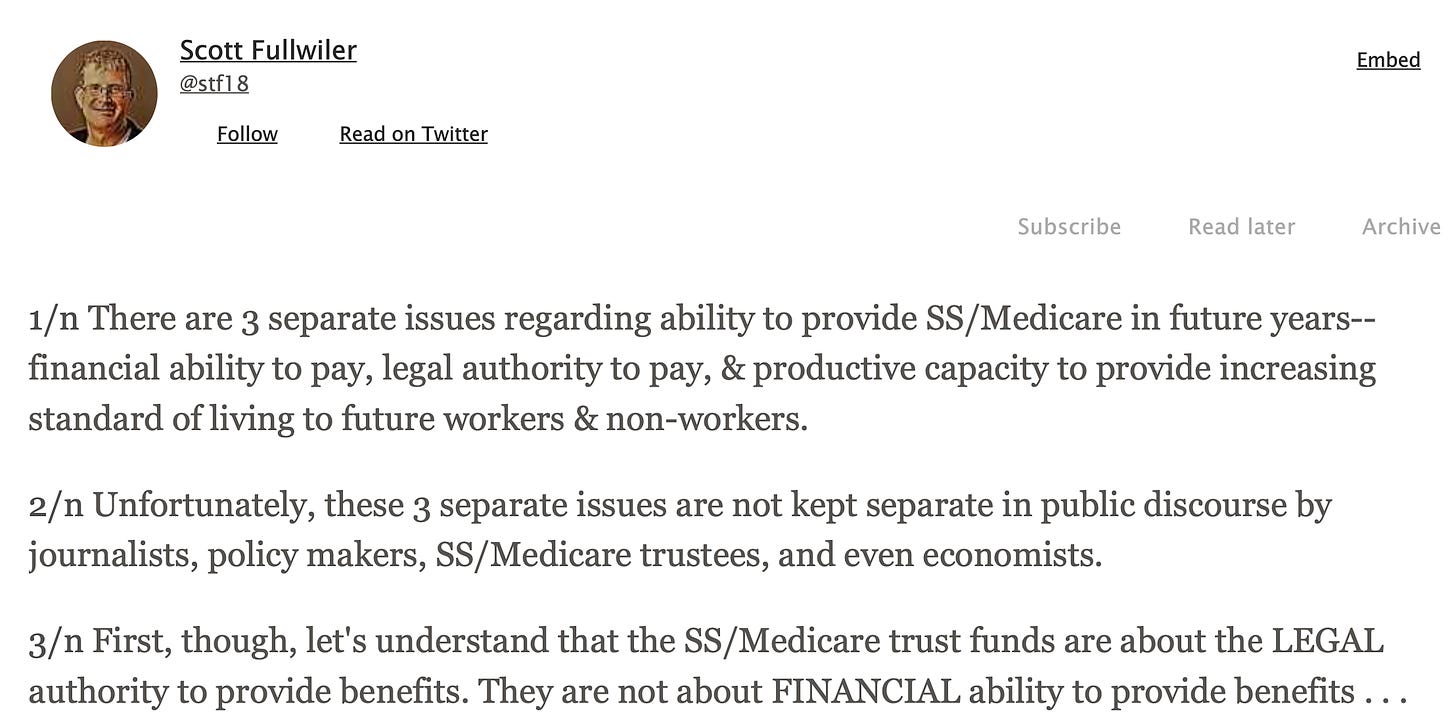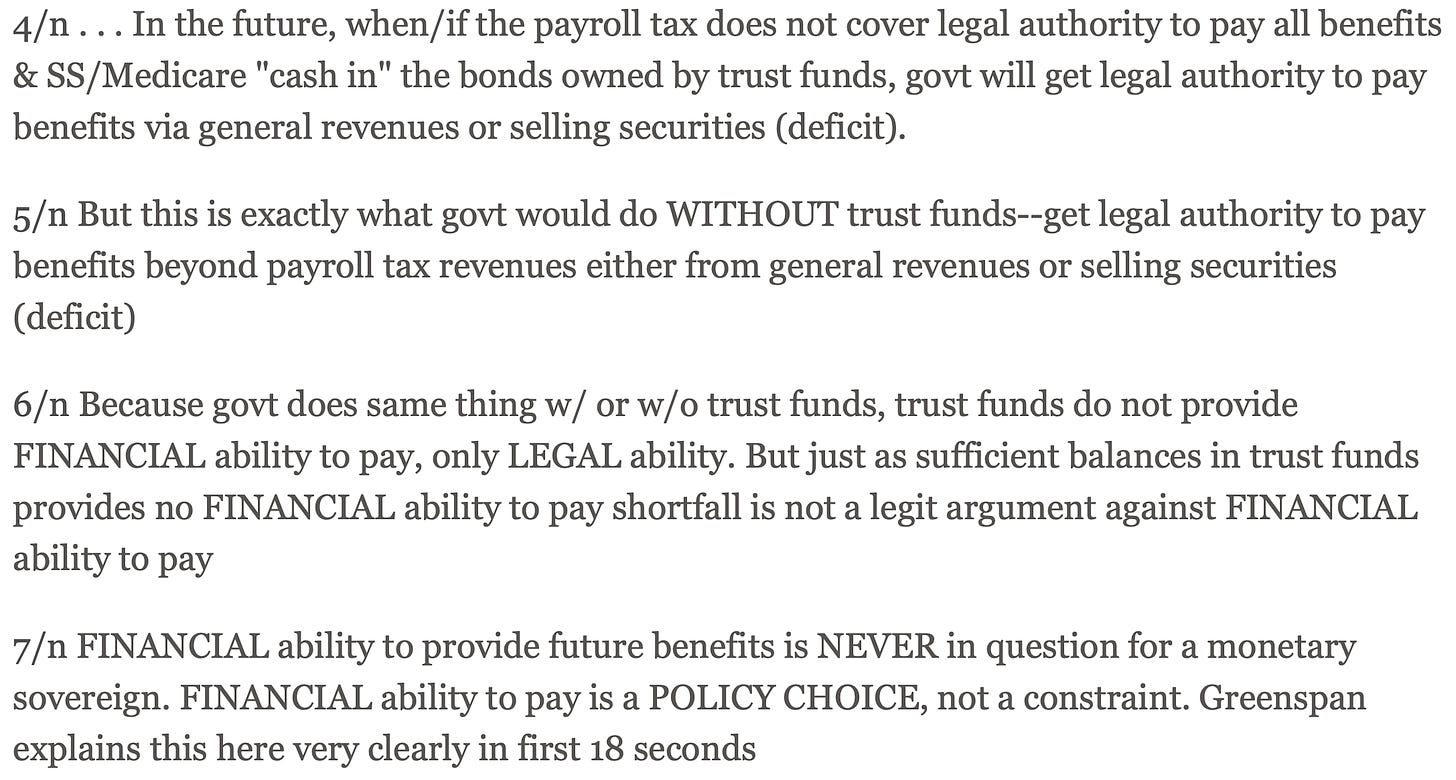Can We Still Afford Social Security and Medicare?
Breaking it down with MMT economist Scott Fullwiler
As promised, today’s post is a rejoinder. With the political fight over entitlement programs like Social Security and Medicare heating up—and, yes, they are entitlements because people are entitled to coverage under the law as long as they meet program eligibility requirements—it’s important to bring some clarity to the debate.
What follows is a series of tweets from MMT economist Scott Fullwiler. Scott is no longer on Twitter, but he sent me an archive of this thread so that I could share it with all of you. If you read it carefully, you’ll notice a sharp departure from the usual focus on Trust Fund balances and financial shortfalls. I wish everyone involved in covering these debates and crafting legislation would take the time to think through what Scott says below. It would lead to a much more productive debate.
If you’re at all confused at this point, please pause and read this.
Click here to see the post Scott is referring to above.
The bottom line is that the MMT lens forces us to acknowledge that the federal government always has the financial ability to pay benefits—to health care providers, future retirees, dependents, and the disabled. Sustaining these programs can never be about financial affordability. Any impediment that was written into the authorizing legislation—e.g. trust fund balances—can always be resolved by modifying the legislative text. It is always a policy choice.
What matters, as MMT has emphasized from the very beginning, are real resource constraints/productive capacity.











To clarify, it is not a matter of whether the government can pay the money obligations of Social Security. The question is if when the retirees use that money to buy things, will the economy be able to supply what they are trying to buy.
The non-productive part of the economy includes the part of the economy that collects debt interest payments from the people. Paying interest on debt makes banks richer, but it does not increase the economy's ability to produce what people want to buy.
The most common misunderstanding I hear from friends & family is even worse than this - that they have "already paid for" their Social Security and Medicare, as if they were drawing money out of a savings account they'd built up while working.